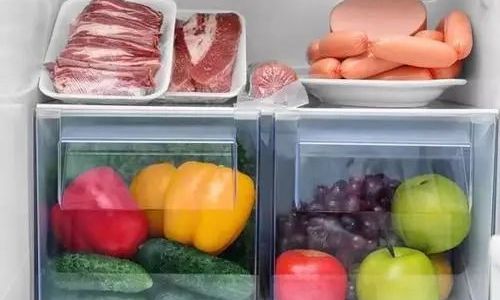Introduction
Yakult, the popular probiotic drink known for its distinct taste and health benefits, has become a staple in many households worldwide. Its active ingredients, primarily the Lactobacillus casei Shirota strain, are renowned for promoting gut health and enhancing the immune system. However, one common question that arises among Yakult consumers is whether the drink can be stored without refrigeration. This article aims to provide a comprehensive answer to this query, exploring the science behind Yakult’s storage requirements, potential risks of not refrigerating it, and practical tips for ensuring optimal freshness and safety.

Understanding Yakult’s Storage Requirements
Yakult is a fermented milk beverage that contains live and active probiotic cultures. These cultures are delicate and require specific conditions to maintain their viability and effectiveness. The manufacturer recommends storing Yakult at a temperature between 2°C and 10°C (35.6°F and 50°F) to ensure that the probiotics remain alive and potent until consumption. Refrigeration provides an environment that slows down the metabolic activities of the bacteria, thereby prolonging their shelf life.
When Yakult is exposed to warmer temperatures, the probiotics begin to multiply rapidly, consuming the available nutrients and potentially producing by-products that can alter the drink’s taste and texture. Moreover, prolonged exposure to high temperatures can lead to the death of the probiotics, rendering the drink ineffective in terms of its health benefits. Therefore, adhering to the recommended storage conditions is crucial for preserving Yakult’s quality and efficacy.
Risks of Not Refrigerating Yakult
Storing Yakult at room temperature or in warmer environments poses several risks:
-
Loss of Probiotic Viability: As mentioned earlier, probiotics are sensitive to temperature changes. When Yakult is not refrigerated, the probiotics may die off, reducing the drink’s effectiveness in promoting gut health.

-
Altered Taste and Texture: Warm temperatures can cause the probiotics to consume the sugars in Yakult more quickly, leading to a change in taste and texture. The drink may become sourer and less appealing.
-
Potential for Contamination: Warm environments provide ideal conditions for the growth of harmful bacteria and molds. If Yakult is left unrefrigerated for extended periods, there is a risk of contamination, which can pose a health hazard.
-
Shortened Shelf Life: Refrigeration slows down the chemical and biological processes that cause food spoilage. Without refrigeration, Yakult’s shelf life is significantly shortened, and it may spoil within a few days.
Exceptions to the Rule: Temporary Non-Refrigeration
While refrigeration is generally necessary for maintaining Yakult’s quality, there are some situations where temporary non-refrigeration is acceptable:
-
Transportation: If Yakult needs to be transported over a short distance and will be consumed immediately upon arrival, it can be kept in a cool bag or insulated container with ice packs to maintain a low temperature.

-
Emergency Situations: In cases where refrigeration is not available due to power outages or other emergencies, Yakult can be kept in the coolest available space (such as a basement or a shaded outdoor area) and consumed as soon as possible.
-
Travel: When traveling, Yakult can be packed in a cooler with ice packs to keep it fresh during the journey. However, it should be consumed within a reasonable timeframe to avoid spoilage.
It’s important to note that these exceptions are temporary solutions and should not be relied upon for long-term storage.
Practical Tips for Storing Yakult
To ensure that Yakult remains fresh and effective, follow these practical tips:
-
Prompt Refrigeration: After purchasing Yakult, refrigerate it immediately to maintain the optimal storage temperature.

-
Proper Handling: When handling Yakult, avoid exposing it to direct sunlight or warm environments. Use a cooler bag or insulated container if you need to take it somewhere.
-
First-In, First-Out: When storing multiple Yakult bottles, use the oldest ones first to ensure that none sit in the refrigerator for too long.
-
Check Expiry Dates: Always check the expiry date before consuming Yakult. Even if refrigerated, the drink’s quality and probiotic viability will eventually decline over time.
-
Avoid Freezing: While refrigeration is necessary, freezing Yakult is not recommended. Freezing can damage the probiotics and alter the drink’s texture upon thawing.
Conclusion
In conclusion, while the question of whether Yakult can be stored without refrigeration may seem straightforward, the answer is nuanced and depends on various factors. Generally, refrigeration is essential for preserving Yakult’s quality, taste, texture, and probiotic viability. However, there are limited situations where temporary non-refrigeration is acceptable, such as during transportation or in emergency situations. By following the manufacturer’s storage recommendations and adopting practical tips for handling and storing Yakult, consumers can ensure that they enjoy the full benefits of this popular probiotic drink.

Remember, the key to maximizing Yakult’s health benefits is to consume it fresh, within its recommended shelf life, and under the proper storage conditions. By doing so, you can reap the rewards of a healthier gut and a stronger immune system, all while enjoying the refreshing taste of Yakult.





0 comments